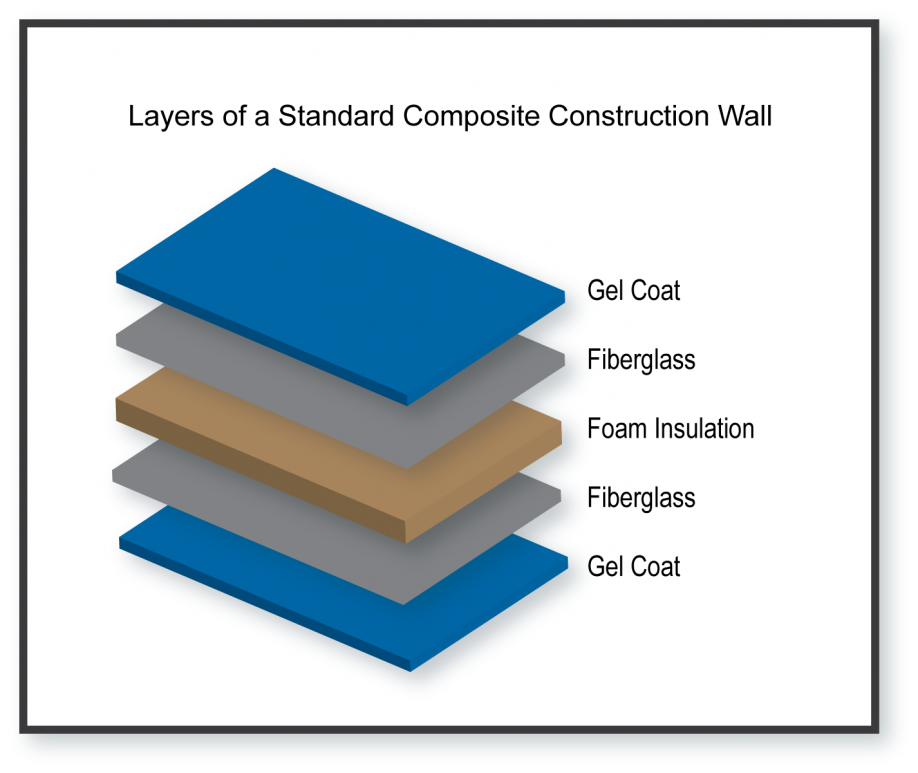Checking Out the Uses and Advantages of Recycled Composites in Modern Industries
In today's quickly progressing commercial landscape, the use of recycled composites has amassed raising attention for its prospective to redefine conventional production practices. The amalgamation of recycled materials with advanced composite technologies provides a promising avenue for boosting sustainability, strength, and cost-efficiency across numerous fields. As markets look for innovative services to resolve environmental issues and enhance functional effectiveness, the unification of recycled compounds emerges as an engaging option. This change towards lasting techniques not only aligns with worldwide conservation efforts but likewise uses a myriad of benefits that hold the key to shaping the future of modern production techniques.
Environmental Advantages of Recycled Composites
The use of recycled compounds in modern-day markets supplies substantial environmental benefits, adding to the decrease of waste and the conservation of natural resources. By integrating recycled composites right into making procedures, markets can reduce their dependence on virgin products, thus lowering the quantity of waste generated and the power required for extraction and production. This shift in the direction of using recycled composites assists in drawing away materials from landfills, reducing the problem on waste management systems, and lowering greenhouse gas discharges linked with standard production techniques.
Moreover, using recycled composites promotes the conservation of natural sources such as wood, minerals, and water, which are typically depleted with the extraction and handling of basic materials (composites). By prolonging the life expectancy of products with recycling, markets can help protect ecosystems and biodiversity by lowering the need for brand-new sources. On the whole, the adoption of recycled composites in modern markets plays a crucial duty in advertising sustainability and mitigating the environmental effect of production processes
Improved Longevity in Product Manufacturing
With a focus on longevity and robustness, integrating recycled composites right into product production processes enhances toughness and sustainability. By utilizing recycled compounds, manufacturers can produce items that are not just solid yet likewise immune to damage, making them excellent for lasting use in various sectors. The mix of various products in recycled composites can typically cause improved stamina and durability compared to conventional materials, offering an economical service for producing lasting items.
One of the essential benefits of utilizing recycled compounds in item production is the capacity to customize the product buildings to meet specific sturdiness requirements. By adjusting the make-up and manufacturing techniques, producers can customize the recycled compounds to endure harsh environmental conditions, heavy lots, or frequent usage without endangering on efficiency. This versatility in style and production permits the creation of very long lasting products that preserve their honesty with time, lowering the requirement click reference for frequent replacements and inevitably adding to a much more lasting manufacturing process.
Cost-Effectiveness and Economic Benefits
Integrating recycled composites into product production not only boosts resilience and sustainability however also supplies substantial cost-effectiveness and financial benefits. Using recycled composites can lead to decreased product costs as recycled products are typically less costly than virgin products. In addition, reusing composite materials can lower garbage disposal costs and reduce the demand for land fill area, adding to overall cost savings for sectors.

Development and Style Versatility With Recycled Composites
Utilizing recycled compounds in modern industries uses exceptional possibilities for technology and layout versatility. By integrating recycled materials into composite production procedures, business can press the boundaries of conventional design restraints and explore brand-new opportunities. The adaptability of recycled composites enables for the production of complex shapes and frameworks that could not be attainable with traditional products.
One of the crucial advantages of recycled composites is their capability to be built into various kinds, offering developers the liberty to experiment with special sizes and shapes. composites. This adaptability opens a globe of creative opportunities, making it possible for the advancement of lightweight yet sturdy products that fulfill the certain needs of various industries
In addition, making use of recycled compounds advertises sustainable methods and sustains the round economic situation by reducing waste and reducing the environmental effect of manufacturing procedures. This concentrate on green layout options aligns with the expanding pattern in the direction of sustainability in contemporary sectors, making recycled composites a beneficial source for forward-thinking and innovative firms.
Applications Across Various Industries
Recycled compounds find diverse and impactful applications throughout a large variety of sectors due to their unique residential or commercial properties look at here and sustainability benefits. The aerospace industry advantages from recycled composites in the production of airplane parts, where the materials' strength-to-weight ratio is important for ensuring safety and performance. The convenience and sustainability of recycled composites make them useful throughout different industries, driving development and environmental stewardship.
Final Thought
In conclusion, the application of recycled compounds in modern-day sectors offers substantial ecological benefits, improved resilience in product manufacturing, cost-effectiveness, and economic benefits. Furthermore, using recycled composites permits technology and layout versatility throughout numerous markets. Generally, the adoption of recycled composites presents a sensible and lasting remedy for satisfying the needs of the market while also lowering environmental effect.

One of the crucial benefits of using recycled composites in item production is the capability to customize the product buildings to satisfy particular toughness needs. Utilizing recycled composites can lead to reduced material costs as recycled materials are commonly much less costly than virgin materials. The aerospace sector benefits from recycled compounds in the manufacturing of airplane parts, where the materials' strength-to-weight ratio is important for making certain safety and performance.